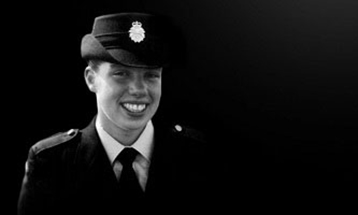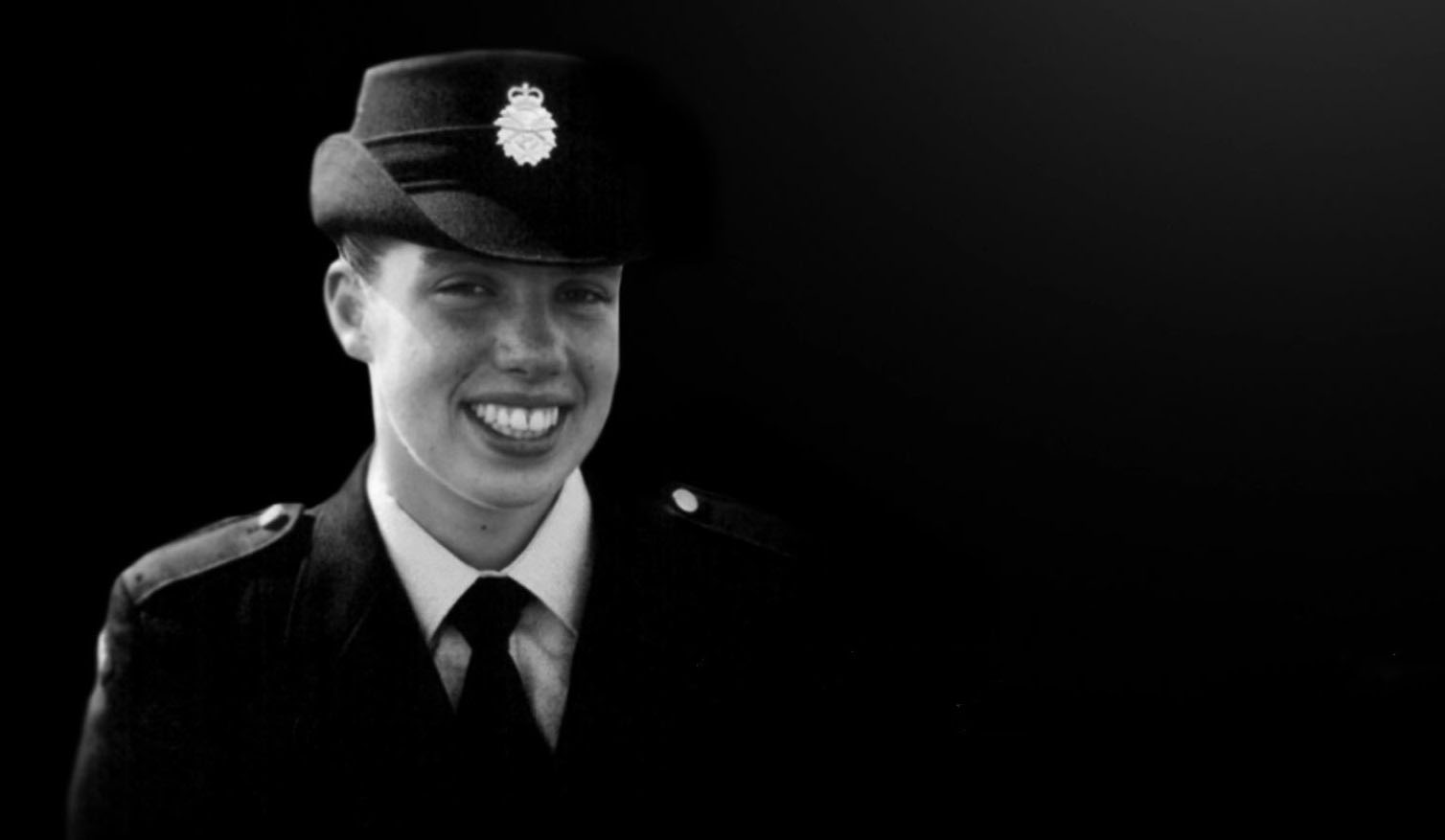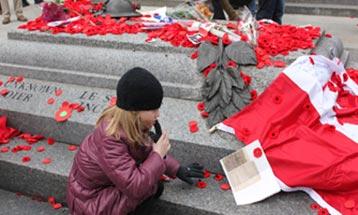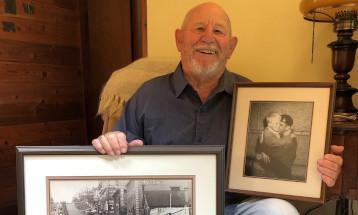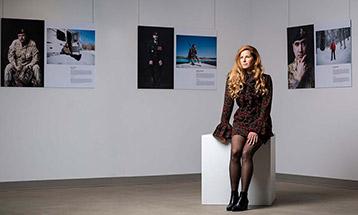That’s part of what moves her to run the annual Goddard Peace Conference. The conference creates a forum for students to learn about conflict resolution and community – all in honour of Captain Nichola Goddard who lost her life during the Canada’s mission in Afghanistan.
In 2018, the conference received support from Veterans Affairs Canada’s Commemorative Partnership Program. “It [the funding] allows us to have honorariums for presenters and awards for the participants,” says Susan. “In other years, it’s allowed us to do some publicity, through community news, and outreach as well.”
The outreach is important, Susan says, because it connects the students to the Veteran community. “We reached out to the whole province for Legion participation, and we also talked to Camp Hill,” says Susan, referring to the Veterans’ long term care facility in Halifax. For some of the older Veterans, it’s a long trip from the hospital to the conference, but they are keen to see young minds learn.
How it all began – a soldier’s day for peace
In 2007, East St. Margaret's Elementary School principal, Brendon McGillivray, was seeing a lot of conflict in the school community. He thought that a workshop-style “day of peace” for the Grades 5 and 6 students would help them understand one another. The Captain Nichola Goddard Day of Peace for Students began that year and helps students experience ways to find peace within themselves, their families and their community.
“Captain Goddard believed in ordinary people doing extraordinary things, and we want young people to believe they are capable of extraordinary things,” says Susan. “Most of the students are motivated to take action for peace when they return to their schools.”
Brendon McGillivray gained permission from the Goddard family to name the day after their daughter, Captain Nichola Kathleen Sarah Goddard, who was killed during combat duty the previous year in Afghanistan. Each principal since 2007 has built on the idea with the help of the school’s office administrator, Danette McDaniel. She makes sure the tradition carries on.
Peace among people, and within
Everyone involved works to help the conference stay true to its values. “Most years, Sally or Tim Goddard opens the conference, and we share a video about Nichola,” says Susan. “We talk about her values of giving everyone a chance, and not being afraid to go after goals. Seeing the best in people was part of Nichola’s work in the military. Her focus was on relationships, even in Afghanistan.”
At the 2018 conference, for example, there were nine workshops. Students from several schools attended each session, rather than staying with the students they knew. Some workshops had military components, such as a presentation by retired CAF and RCMP officer Phil McLelland, who served in Haiti during the devastating earthquake in 2010. “He explained the situation after the earthquake and asked them: How would you solve this? How would you keep it peaceful? The kids loved his workshop,” says Susan. Another presenter, Dr. Shelly Whitman, described her work with the Roméo Dallaire Child Soldiers Initiative. Students were shocked to hear that in some parts of the world children no older than themselves were recruited by force.
Veterans have a continued presence at the conference. In Susan’s first year as Principal, she reached out to The Royal Canadian Legion branches across Nova Scotia and has since had regular presentations from the Berwick Branch. “Petty Officer First Class Peter Rigby, Petty Officer Second Class Peter Martin, and Leading Seaman Chris Goddard—they’ve been fabulous,” Susan says. “They talk about their experiences in Kuwait, Southeast Asia, Yugoslavia, Afghanistan and Bosnia. With real‑life experiences, they can impress on students the importance of not taking peace for granted.”
Margaret Guildford, a Second World War Nursing Sister, also gave a presentation. Now in her nineties, she is “a real firecracker,” as Susan puts it. “She showed the kids pictures from the war, and was completely honest about her experience, but the kids were speechless and weren’t asking any questions,” Susan says. A bit of Margaret’s military attitude may have come out at that point: “She got stern with them and told them that they need to start talking. And that loosened the kids up.”
Not all of the workshops had military themes: some focused on building peace within oneself through art, music, yoga and martial arts. A Mi’kmaq Elder and Korean War Veteran, Bill Lewis, led a peace circle and a smudging ceremony. An Acadian representative talked about the importance of food and culture to the community. An African artist helped the students work on peace banners with another Fine Arts Specialist.
Looking onward
Veterans Affairs Canada is committed to honouring those who served Canada in times of war, military conflict and peace, and to keeping the memory of their achievements and sacrifices alive for all Canadians. Funding is available to organizations undertaking remembrance initiatives through the Commemorative Partnership Program.
Date published: 2020-03-23
